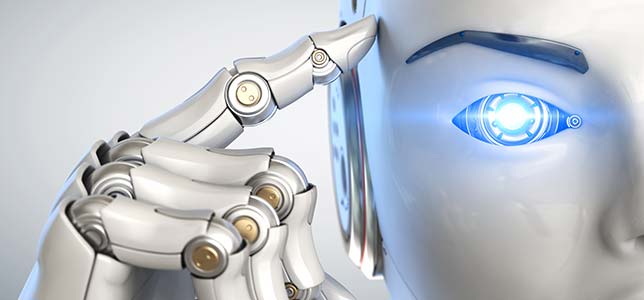Artificial Intelligence
BYU Researchers Aim to Stop Robots from Eating Tables with Wikipedia

A team of researchers from Brigham Young University is using Wikipedia to make sure a future android won't try to tickle a refrigerator, drive a teapot or eat a table.
Eventually the team, led by Ph.D. candidate Nancy Fulda and computer science professor David Wingate, hopes to help build androids that can interact with the world reasonably well. The problem is that, while computers are fairly good at identifying objects, they are pretty terrible at understanding the context around them, including ideas such as what to do with them, how heavy they might be or where they're likely to be found.
"Consider the monitor on your desk: you can look at it, you can turn it on, you can even pick it up or throw it, but you cannot impeach it, transpose it, justify it or correct it," said Wingate in a prepared statement. "You can dethrone a king or worship him or obey him, but you cannot unlock him or calendar him or harvest him."
"When machine learning researchers turn robots or artificially intelligent agents loose in unstructured environments, they try all kinds of crazy stuff," added Ben Murdoch, an undergraduate student and co-author on the paper. "The common-sense understanding of what you can do with objects is utterly missing, and we end up with robots who will spend thousands of hours trying to eat the table."
In order to teach a software agent about affordances — the actions one can do with an object — the group downloaded Wikipedia, which represents a huge set of modern English in use, and ran it through an existing algorithm.
"And voila! The computer is equipped with common-sense knowledge about things that make sense," said Wingate in a news release.
To test the agent's new knowledge, the team had it play a text-based game with a human and saw the agent's performance improve in 12 out of 16 of those games.
The agent still makes mistakes, but it's come a long way, according to the team members.
"I love it when the agent does something that surprises me in a good way," said Fulda in a prepared statement. "I'm like, it did it: it figured it out all by itself. It's kind of like watching your child take their first steps."
About the Author
Joshua Bolkan is contributing editor for Campus Technology, THE Journal and STEAM Universe. He can be reached at [email protected].

